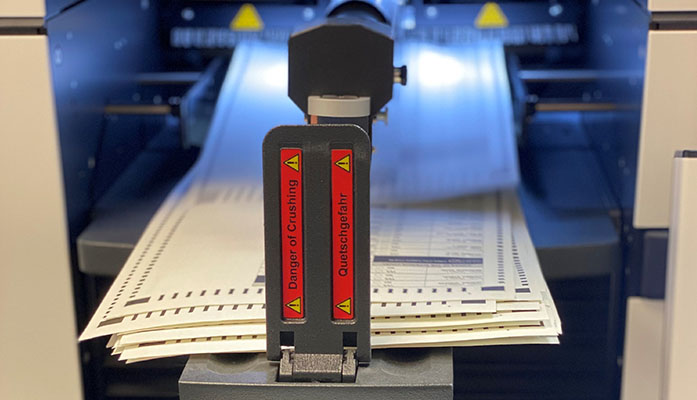
On November 5, Arizona voters will be making their wishes known regarding a lot more than just what candidates will occupy major elective offices.
The ballot measures that we will be voting on will be higher than they have been in recent past, both in terms of the numbers and the importance of the issues.
Regarding the numbers, we have 11 propositions that are guaranteed to be on the ballot because they were voter referrals passed by the legislature. In addition, we have 3 citizen initiatives that are very likely to be on the ballot. The total of 14 measures is historically high, compared to 2020 and 2016.
The importance of the issues cannot be overstated. We will be voting on major changes to how our state government is run. These include how elections and citizen initiatives are conducted, the balance of power between the governor and the legislature, and how supreme court justices and superior court judges are retained. It is also very likely that voters will have the last word on the issue of abortion.
With so many important issues on the line, we are certain to receive a tremendous amount of information, some of which may not be entirely truthful or reliable. Therefore, it is important that voters be well informed by going to the original sources, rather than relying on what someone else claims.
The amount of information involved can be quite daunting. That is why we have gone to two reliable sources, the Arizona State Legislature and Ballotpedia – AZ, and created a manageable summary of the ballot measures, as follows:
ON THE BALLOT
| BILL #
(YEAR) |
TITLE | DESCRIPTION |
| HCR2033
(2023) |
Proposition 133 | Legislatively referred constitutional amendment
Require partisan primary elections for partisan offices |
| SCR1015
(2023) |
Proposition 134 | Legislatively referred constitutional amendment
Creates a signature distribution requirement for citizen-initiated ballot measures based on state legislative districts |
| HCR2039
(2023) |
Proposition 135 | Legislatively referred constitutional amendment
Provides for the legislature to terminate a state of emergency or alter the emergency powers of the governor during the state of emergency, and provide for any emergency powers granted to the governor to automatically terminate 30 days after the state of emergency is proclaimed, unless the state legislature extends the emergency powers granted to the governor, and except in cases for a state of war emergency or an emergency arising from a flood or a fire |
| SCR1041
(2024) |
Proposition 136 | Legislatively referred constitutional amendment
Provides for challenges to an initiative measure or constitutional amendment after the filing of the measure with the secretary of state |
| SCR1044
(2024) |
Proposition 137 | Legislatively referred constitutional amendment
Ends term limits for state supreme court justices and superior court judges, replacing them with terms of good behavior, unless decided otherwise by a judicial review commission, and would end retention elections at the end of the judicial term, providing for retention elections under certain circumstances |
| SCR1040
(2024) |
Proposition 138 | Legislatively referred constitutional amendment
Allows for tipped workers to be paid 25% less per hour than the minimum wage if any tips received by the employee were not less than the minimum wage plus $2 for all hours worked |
| SCR1006
(2023) |
Proposition 311 | Legislatively referred state statute
Establishes a $20 fee on every conviction for a criminal offense, which would go to pay a benefit of $250,000 to the family of a first responder who is killed in the line of duty |
| HCR2023
(2024) |
Proposition 312 | Legislatively referred state statute
Allows for property owners to apply for a property tax refund in certain circumstances, including in instances if the city or locality in which the property is located does not enforce laws regarding illegal camping, loitering, obstructing public thoroughfares, panhandling, public urination or defecation, public consumption of alcoholic beverages, and possession or use of illegal substances |
| SCR1021
(2024) |
Proposition 313 | Legislatively referred state statute
Provides for life imprisonment for an individual who is convicted of sex trafficking of a child |
| HCR2060
(2024) |
Proposition 314 | Legislatively referred state statute
Allows for state and local police to arrest noncitizens who cross the border unlawfully, allow for state judges to order deportations, require the use of the e-verify program for some public governmental programs and employment eligibility purposes, and make the sale of fentanyl a Class 2 felony if a person knowingly sells fentanyl resulting in the death of another person |
| SCR1012
(2024) |
Proposition 315 | Legislatively referred state statute
Prohibits a proposed rule from becoming effective if that rule is estimated to increase regulatory costs by more than $500,000 within five years after implementation, until the legislature enacts legislation ratifying the proposed rule |
POTENTIAL MEASURES. Will likely be on the ballot
| INITIATIVE
TEXT |
TITLE | DESCRIPTION |
| I-05-2024 | Proposition — | Citizen Initiated constitutional amendment
Establishes the fundamental right to abortion that the state of Arizona may not interfere with before the point of fetal viability |
| I-14-2024 | Proposition — | Citizen Initiated constitutional amendment
Eliminates partisan primaries and replace them with an electoral system where individuals may vote for the candidate of their choice, regardless of the party affiliation of the voter or the candidate |
| I-02-2024 | Proposition — |
Citizen Initiated State Statute Increases the minimum wage to $18 per hour
|

